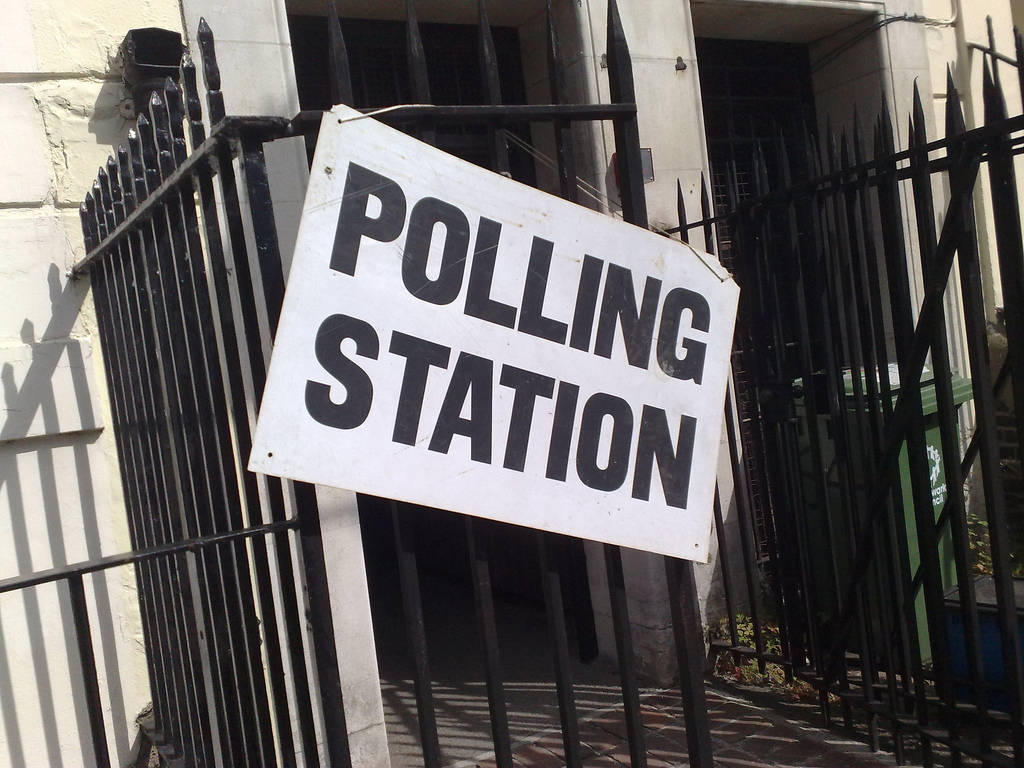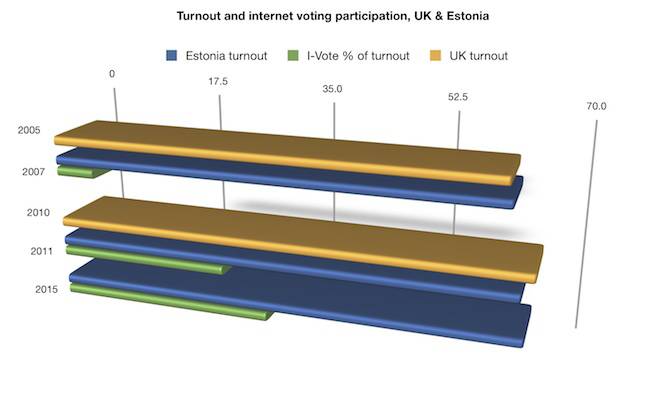This article is more than 1 year old
E-voting and the UK election: Pick a lizard, any lizard
Would digital democracy really solve our political problems?
Digital exclusion
We have, in GDS and its cheerleaders, a desire to make things "Digital First". It's not, then, a tremendous leap to imagine a future in which, thanks to electronic voting – and a massive budget overspend setting it up – that costs have to be cut somewhere. If people can vote from home, why do we need so many polling stations, people will say? Why, hardly anyone came to this one, so let's close it down.

With online voting, would there be pressure to close polling stations? Photo: Flickr/SecretLondon123
You can get internet access for a tenner a month. You can buy a refurbed computer for about 100 quid or a tablet for less. And you can also find yourself so skint that both of those are unimaginable luxuries, even in the UK. Whether through poverty, or infirmity, or an inability to get to grips with the technology, there will be those who can't use online voting.
On a bright sunny day when the polling station is a short walk away, that might not seem like such a big thing. But do we really want a situation where voting is easy for those who can afford the equipment, but involves travelling and queueing for the rest? Even those living in rural areas with poor mobile signals or broadband could find themselves queueing in a cold church hall, while their city brethren vote from beneath the duvet.
It's impossible to say if electronic voting will cause a swing to the left – lots of young people enthused, older people left out – or to the right – poor people disenfranchised, the well off voting from home – but it's certainly possible that it could have an effect. One solution, perhaps, would be a modern equivalent of the Minitel, the French viewdata terminal that was distributed free by the state phone company. Such interventions might be frowned upon these days, but if 'digital by default' is the future of the state, then doesn't it also have a duty to ensure that nobody is disadvantaged, especially when it comes to voting?

Minitel terminals were given away free. Is this the solution to fair e-voting? Picture: Flickr/F. Bisson
Supermarket sweep
E-voting isn't the only solution that's been suggested for falling turnouts, of course. In Sweden it's possible to vote in supermarkets, a suggestion that's been put forward for both the UK and Germany, too. While most polling stations here are in schools – publicly funded buildings can be required to host one – the last general election saw pubs, launderettes and even a couple of private homes used.
However, isn't there one really big question that needs to be asked? Do people really decide not to vote because of their "busy, modern lifestyle", or are there other factors at work? We don't know yet what the turn-out will be in this year's General Election, only that it will be closely fought – and that a chunk of people won't be voting because of changes to the registration system.
Still others won't vote because they live in a safe seat, and in recent elections all parties have concentrated their fire more and more on marginal constituencies that they think they'll be able to win. If your vote's being taken for granted, why bother? This year, too, the higher profile of parties beyond the traditional – the likes of the Greens, SNP and UKIP (in alphabetic order; no favours here) – has highlighted the failings of First Past the Post even more.

Has online voting really increased turn-out in Estonia?
You can, with some justification, point to Estonia as a success for e-voting. But take a closer look at its turn-out figures. With 61.9 per cent in 2007, 63.5 per cent in 2011 and 64.2 percent in 2015, they're not so different from our own of 61.4 per cent in 2005 and 65.1 per cent in 2010.
A rise of 6.2 per cent in Estonian internet voters from 2011 to 2015 was actually matched by an overall increase of just 0.7 per cent participation. That suggests that internet voting is largely replacing other methods, rather than encouraging more people to vote. Of course, the same may not hold true here. Estonia is, after all, both much smaller than the UK, and a more recent convert to democracy.
Stand up
In researching this piece, I asked a number of "hardworking men and women" how they feel about voting. None of them felt that the walk to a local school or community hall, once every five years, was onerous. Plenty, though, were disillusioned with politics, or dismayed by the current campaign.
All too many people feel, ultimately, that their vote doesn't matter. And if they feel that way, no amount of money spent on internet voting, or effort in moving the ballot box to the supermarket, is really going to make a difference, is it?
We need something more – whatever that is. In the meantime, we're stuck with what we've got. So, to paraphrase both Douglas Adams and Dennis Potter, on Thursday May 7, stand up, and Vote, Vote, Vote, to make sure the wrong lizard doesn't get in. ®
